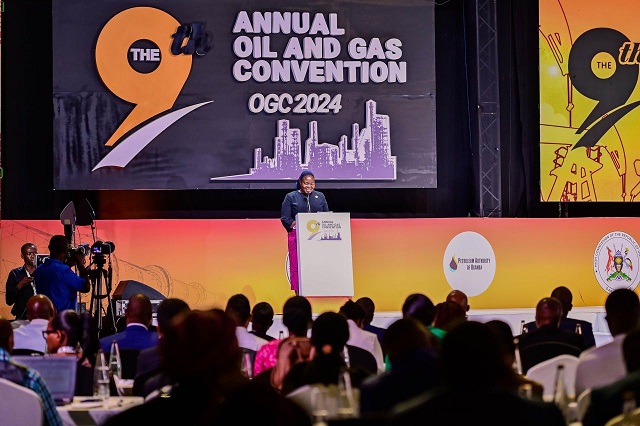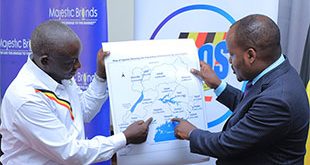
Kampala, Uganda | THE INDEPENDENT | The Ministry of Energy and Mineral Development insists that all the required infrastructure will be in place for the start of oil production by the end of 2025.
Major infrastructure projects include the crude oil central processing facilities in the two areas; Kingfisher run by Cnooc Uganda Ltd and Tilenga operated by TotalEnergies EP Uganda, the crude export pipeline (EACOP), storage facilities and the refinery.
At least 300 kilometers of pipes have already been delivered in Dar es Salaam, as the actual laying of the pipeline commences next month is according to Minister Ruth Nankabirwa.
She admitted, however, that time has already been lost on the refinery project completion, with the Albertine Graben Refinery Consortium failing to do any work for the five years of signing the contract.
However, she says the newly contracted Alpha MBM Investments LLC from the United Arab Emirates has agreed to fast track the project, with the most of the agreements and MoU signed already, though the original timelines might not be met.
Nankabirwa assured the country and investors that the delays, even those caused by the COVID-19 pandemic, have not fundamentally affected the project value, with the progress and the already agreed items being largely intact.
Speaking at the 9th Oil and Gas Convention in Kampala Wednesday, the Minister said that now that the pressure by activists on Uganda and Tanzania seems to be behind, the there should be no new delays.
She appreciates that the EACOP project should have been expected to draw global attention because of its unique features, including being the longest heated pipeline, not seen anywhere before.
The Minister vowed that there would now be nothing able to stop the progress of the oil and gas industry, adding that she is due to meet the president of China over the same project. She however added that the two countries will continue abiding by the standards that the world demands in the industry.
The 2-day oil and gas convention is organised by the Uganda Chamber of Mines and Petroleum (UCMP) in conjunction with the ministry, Petroleum Authority of Uganda, the Private Sector Foundation Uganda and the oil and gas companies.
Speaking on behalf of the Chamber, Humphrey Asiimwe the Chief Executive Officer, revealed that the investment expectations as at the signing of the Final Investments Decision were already being met or exceeded. Asiimwe, who represented Chairman Patrick Mweheire, said, for example, that by the first drop of oil, between 15 and 20 billion dollars will have been invested in the country.
He said however, that to date, at least 7 billion dollars has been invested in the activities, while another 11 billion has been injected into the “community exonomy” through the provisions of goods and services.
For this, what he called tangible benefits, he called for the support of the sector to succeed despite the global pressure. Ernest Rubondo, the Chief Executive Officer PAU, said the activities in the oil and gas industry have intensified and will peak next year before easing after two years. He said this high level of activity is testament that the timeline for production next year is achievable.
The convention is being held under the theme, “The Journey To First Oil In The Face Of A Just Energy Transition In Uganda,” which mirrors the ongoing global discourse on energy transition.
Speaking on the theme, Rubondo said Transition to just energy was part of the move by Uganda to produce oil because the industry would be used to fund the transition, which needs billions of dollars to achieve. He said Uganda and Africa should not be expected to move at the same level of Europe and USA because the country needs to exploit the available resources to be able to fund the transition.
Rubondo also wondered why Uganda should stop its projects when there is renewed investment into the fossil fuels exploration and production elsewhere in the world !
On his part, Elly Karuhanga, a former and founder member of the Chamber, said energy transition should be fair to all and not discriminative against Africa.
Karuhanga said that much as there is need for Uganda to be part of the move towards cleaner energy, it must move at a pace that will not have adverse effects on other sectors and communities.
******
URN
 The Independent Uganda: You get the Truth we Pay the Price
The Independent Uganda: You get the Truth we Pay the Price



